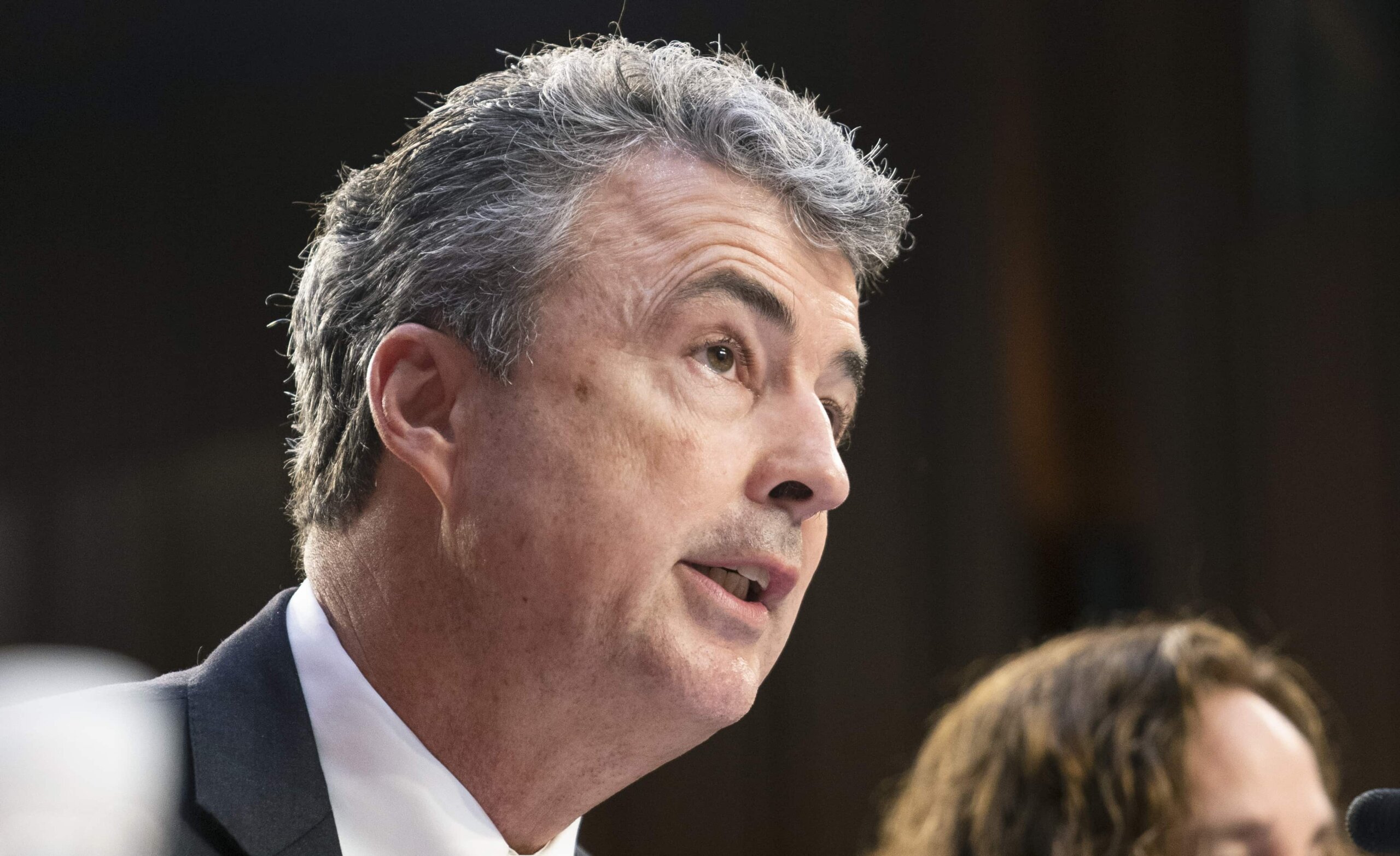Alabama is defending its trans youth medical care ban by invoking the Supreme Court’s recent reversal of Roe v. Wade.
In a 76-page brief filed on June 24, Attorney General Steve Marshall urged the 11th U.S. Circuit Court of Appeals to overturn a lower court injunction partially blocking Senate Bill 184, which criminalizes gender-affirming treatments for trans youth under the age of 19. Marshall’s plea references Justice Samuel Alito’s majority opinion repealing Roe “at least nine times,” according to the Montgomery Advertiser.
“If a right to abortion is not protected by the constitution, Steve Marshall concluded that access to trans youth health care isn’t either.”
“No one—adult or child—has a right to transitioning treatments that is deeply rooted in our Nation’s history and tradition,” Marshall wrote. The final eight words in that sentence are directly pulled from Alito’s opinion in Dobbs v. Jackson Women’’s Health Organization, in which the conservative justice argued that the Supreme Court’s previous 1973 ruling mandating a right to abortion care up to the point of fetal viability was “egregiously wrong from the start.” Alito’s conservative colleagues joined him in striking down Roe, in a 6-3 decision handed out on June 24.
If a right to abortion is not protected by the constitution, Marshall concluded that access to trans youth health care isn’t either. “The State can thus regulate or prohibit those interventions for children, even if an adult wants the drugs for his child,” he wrote in documents submitted to the appeals court.
SB 184, which was signed by Alabama Gov. Kay Ivey on April 7, is the first law in U.S. history to make trans youth medical care illegal. Under the statute, doctors and other health care providers face a maximum sentence of 10 years in prison and a $15,000 fine for offering medical treatments like hormone replacement therapy (HRT), puberty blockers, and gender-affirming surgery to trans minors. Providers have stated in response to SB 184’s introduction that surgery is not performed on minors in the state.
The law was partially enjoined in May by the Northern Division of the U.S. District Court for the Middle District of Alabama. In his ruling, Judge Liles C.lias Burke dismissed claims from state GOP leaders that medications like puberty blockers are “experimental,” and said that SB 184 is likely constitutional under the 14th Amendment, which requires that the government apply its laws equally to all citizens.
“The uncontradicted record evidence is that at least 22 major medical associations in the United States endorse transitioning medications as well-established, evidence-based treatments for gender dysphoria in minors,” Burke wrote.
While Burke blocked the trans youth medical care ban from going into effect, his ruling allowed other aspects of the law to stand. SB 184 also required teachers and other faculty members to notify family members if they become aware that a student’s gender identity does not align with the sex they were assigned at birth—effectively outing them.
In asking the 11th U.S. Circuit Court to allow Alabama to enforce its trans youth medical care ban, Marshall reaffirmed the state’s belief that gender-affirming treatments are
“sterilizing interventions [that] are too dangerous for minors.” He argued in the brief: “Just as the parental relationship does not unlock a Due Process right allowing parents to obtain medical marijuana or abortions for their children, neither does it unlock a right to transitioning treatments.,” he argued in the brief.
Fifteen U.S. states have filed briefs supporting Alabama’s attempt to defend its ban on gender-affirming health care for trans youth. These states include Arkansas, Arizona, Georgia, Oklahoma and Texas. Both Arkansas and Arizona have passed laws restricting youth access to medical treatments for gender dysphoria, but those are more limited in scope; Arkansas’ law was blocked by a federal court in July 2021.
Marshall’s brief is likely to reignite fears among LGBTQ2S+ advocates that conservatives will exploit the repeal of Roe to target equality. In a concurring opinion, conservative Justice Clarence Thomas said the Supreme Court “should reconsider” its opinions in landmark LGBTQ2S+ rights victories like Obergefell v. Hodges and Lawrence v. Texas in the wake of Dobbs. Thomas said that the Supreme Court is obligated to “correct the error” it made in these rulings—which, respectively, established a federal right to marriage equality and struck down state-level sodomy bans.


 Why you can trust Xtra
Why you can trust Xtra


